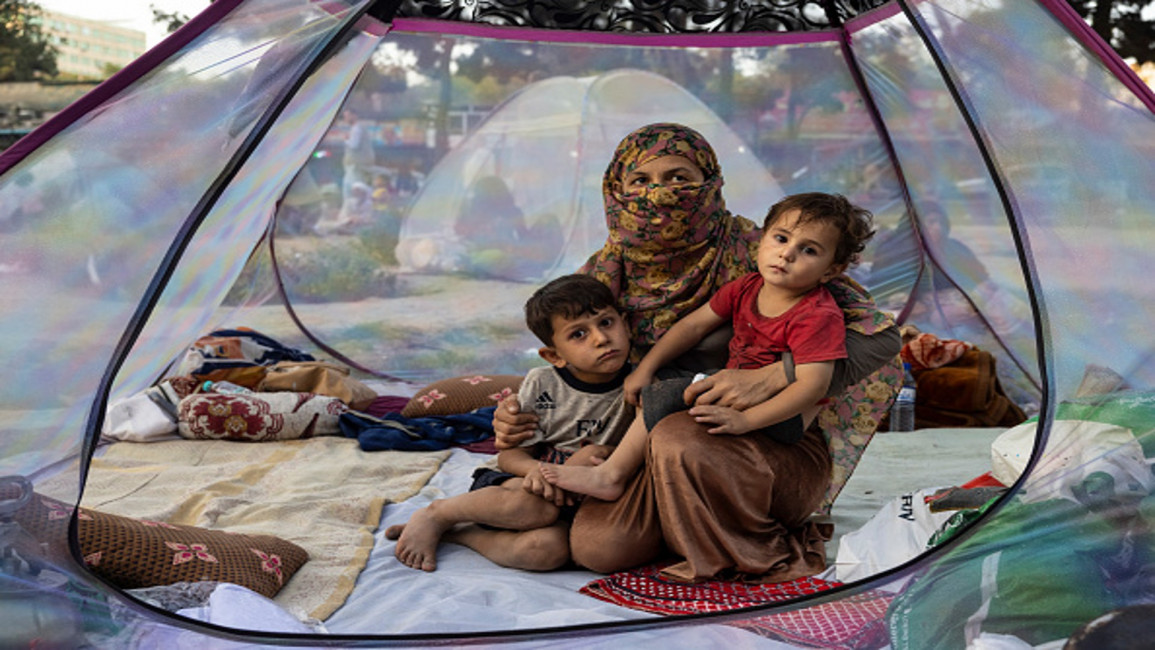UN draft Afghanistan resolution 'weakest possible' response
Rights groups voiced outrage on Monday that a draft resolution on Afghanistan before the UN's top rights body fails to order an international investigation into rights abuses in the war-shattered country.
The UN Human Rights Council will discuss the text during a special session on Tuesday requested just days after the Taliban took effective control of Afghanistan on August 15.
There had been calls for the council to establish an international fact-finding mission to assess the situation on the ground and seek to document violations, including war crimes and crimes against humanity, with the view to ensuring accountability.
But the text presented on Monday by Pakistan, as the coordinator of the Organisation of Islamic Cooperation, only makes a reference to the need for an investigation, and stops short of ordering an international probe.
The text "recommends the weakest possible response," Patricia Gossman, an associate Asia director for Human Rights Watch, said in a statement.
"For Afghan human rights defenders and women’s rights activists who are watching in horror as the rule of law crumbles around them, the draft resolution is more of an insult than a response."
Need for 'robust mechanism'
The text, which does not mention the Taliban, does stress the need for "transparent and prompt investigation into reports of all violations and abuses... and to hold those responsible to account."
It also calls for "an immediate ceasefire", expresses "grave concerns over violations and abuses" in the country, and calls for "full respect of human rights of all Afghan citizens, women, children and minorities".
And it calls for the UN High Commissioner for Human Rights Michelle Bachelet to draft a report on the situation in the country in time for the council's main annual session next March.
Nasir Ahmad Andisha, the Afghan ambassador to the UN in Geneva appointed under the now collapsed government of ex-president Ashraf Ghani, made clear that he wanted to see stronger action.
"The need for a robust mechanism is clear," he told an organisational meeting ahead of the special session.
Afghanistan was along with Pakistan behind the request for Tuesday's session, but its decision to join forces with the very diverse OIC had from the start made it unlikely the draft resolution could go as far as it would have liked, diplomats said.
Pakistan's Ambassador Khalil Hashmi insisted during Monday's meeting the importance of ensuring that the rights body "speak with one voice in solidarity with the people of Afghanistan", and said he hoped the resolution would pass by consensus.
A number of countries who otherwise would have pushed for the resolution to go further had held back for fear that a stronger response could potentially anger the Taliban and jeopardise the desperately needed access for evacuations from the country, according to several diplomatic sources.
Some diplomats also voiced hope that more forceful action could be taken next month during a scheduled regular council session.
The council holds three regular sessions each year, but can hold special sessions if at least a third of its 47 members - 16 of them - support the idea.
The request for Tuesday's special session has so far been supported by nearly 100 countries, including 29 council members.
It will mark the 31st special session of the top UN rights body since its creation 15 years ago.



